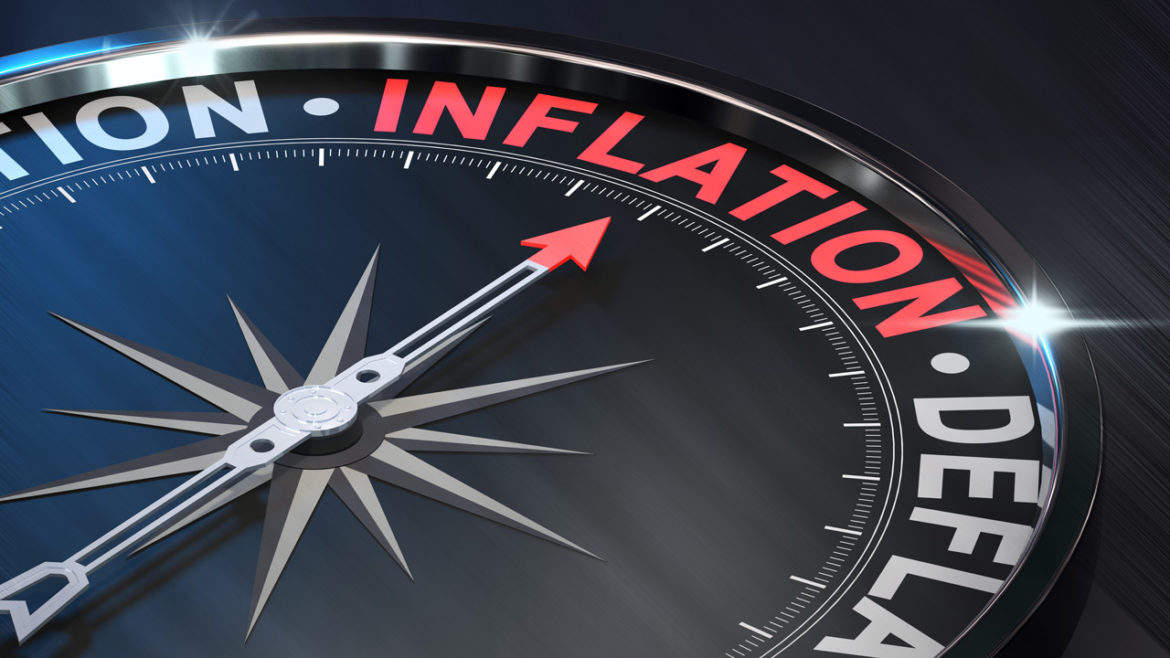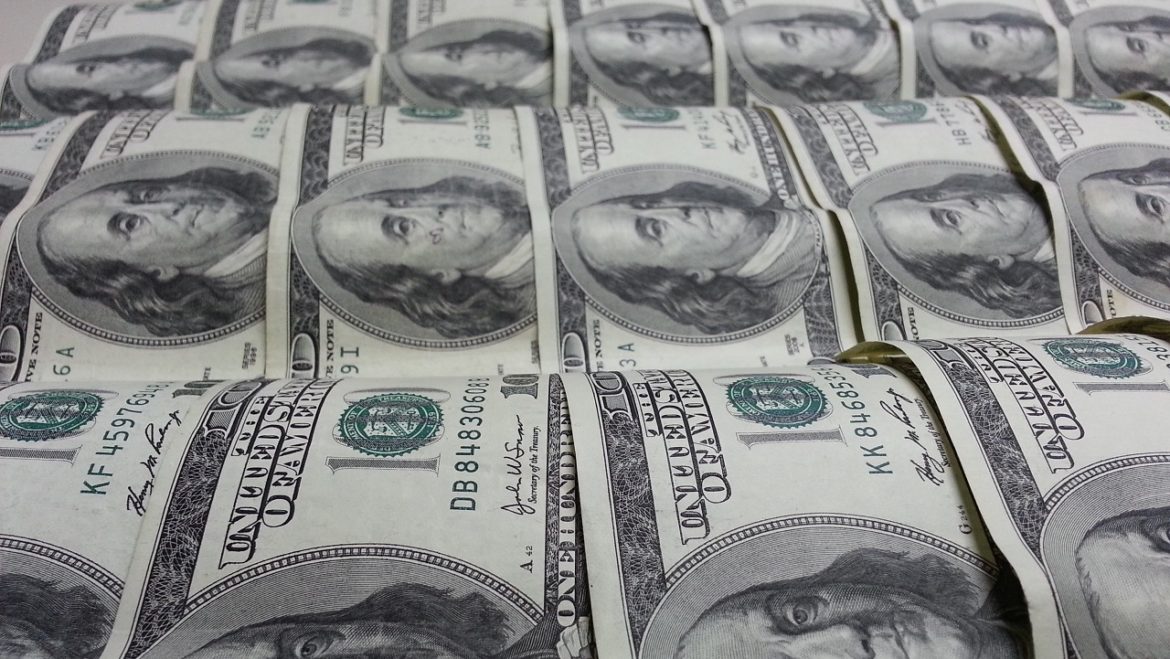Gold has all the potential to go unprecedentedly high. But silver will be gold on
Site:
Precious metals news
 Worse than 2008 Crises: China's Free Fall in Banking Sector Amid $4 Trillion Real Estate Downturn
Worse than 2008 Crises: China's Free Fall in Banking Sector Amid $4 Trillion Real Estate DownturnDec 13, 2023 - 07:11:18 PST
China's banking system is at risk of a severe crisis, with its real estate sector's troubles potentially wiping out $4 trillion. The sector, plagued by debts and defaults, has left enough empty homes to house 3 billion people. This crisis could have a major impact on the highly-levered banking system, potentially exceeding the $700 billion losses of the U.S. Great Financial Crisis says Hayman Capital CIO Kyle Bass.
Inflation is dead!At least that's what you would think if you listen to government officials and talking heads in the financial media.So, how is this victory over inflation working out for the average person?Not so great.
 Core Producer Price Inflation Drops to 2.0%, Approaching Three-Year Low"
Core Producer Price Inflation Drops to 2.0%, Approaching Three-Year Low"Dec 13, 2023 - 05:45:43 PST
In November, U.S. Producer Prices were unchanged, with Core PPI at its lowest year-over-year increase since January 2021, largely due to lower energy prices. Despite this seemingly positive trend, the outlook remains uncertain, heavily influenced by global commodity prices, China's economic stimulus decisions, OPEC+ oil production, and U.S. strategies to maintain low gas prices during the election year.
 Argentina Tackles Deficit Crisis: Peso Devaluation and Spending Cuts Initiated
Argentina Tackles Deficit Crisis: Peso Devaluation and Spending Cuts InitiatedDec 13, 2023 - 05:40:21 PST
Argentina plans a 50% devaluation of its peso to 800 per dollar, cuts in energy subsidies, and cancellation of public works, under new Economy Minister Luis Caputo. This drastic action targets the country's deep fiscal deficit and soaring inflation. The IMF supports these measures for economic stabilization, but their implementation carries significant risks.
 Re-election Time: Biden Fires up Price Wars, Now Says ‘Too Many Things Unaffordable’
Re-election Time: Biden Fires up Price Wars, Now Says ‘Too Many Things Unaffordable’Dec 13, 2023 - 05:29:58 PST
In November, U.S. inflation slightly cooled, but President Biden continues to face challenges in proving the effectiveness of his economic policies. The Consumer Price Index indicated a minor deceleration in inflation due to lower energy costs, despite increases in food and housing prices. Despite these signs of a "soft landing," Biden acknowledges the ongoing struggle with high living costs and pledges to tackle issues like prescription drug costs and corporate pricing practices. This approach marks a shift from his earlier optimistic tone on economic progress, influenced by negative polling on his economic policies.
 U.S. November Budget Deficit Reaches All-Time High Due to Soaring Interest Expenses
U.S. November Budget Deficit Reaches All-Time High Due to Soaring Interest ExpensesDec 13, 2023 - 05:22:17 PST
The U.S. federal budget deficit in November soared 26% from the previous year to a record $314 billion for the month, mainly due to higher interest costs. This figure surpassed economists' expectations of $301.05 billion. Federal revenues increased by $23 billion to $275 billion, marking a 9% rise from the previous year.
Dec 13, 2023 - 05:12:09 PST
The "Everything Bubble," encompassing bonds, real estate, and stocks, is showing signs of collapse in 2023. Banks are distressed due to Federal Reserve's quantitative tightening and interest rate hikes, causing bond values to drop. High corporate default rates are rising, with expectations of further increases in 2024. The housing market is stagnant, with high prices and interest rates, leading to affordability issues and potential bailouts for struggling homeowners. Overall, the economic landscape is strained, with looming concerns over further deterioration in 2024.
Dec 13, 2023 - 05:06:26 PST
President Biden attributes high prices to greedy businesses, overlooking the impact of the Federal Reserve's monetary policy and the fiat money system since 1971. Critics argue that the real cause of widespread price increases is the Fed's policies, not consumer spending or business practices. The devaluation of the dollar encourages immediate spending over saving, further exacerbating inflation. Despite nominal wage increases, real wages decline, with gold seen as a more stable value. The solution proposed is for Congress to reduce spending and reform the Federal Reserve.
Why do virtually all the mainstream pundits think the Federal Reserve has won the inflation fight?Maybe it’s just wishful thinking. They want the Fed to win so it can go back to what it does best – creating more inflation with artificially low interest rates and quantitative easing.Regardless, most of the mainstream punditry hyped the November CPI report as more positive news on the inflation front. The CNBC headline reflected the consensus - inflation "slowed" last month.Except it really didn't.
 SRSROCCO COMMODITY CULTURE INTERVIEW: Falling Energy Supply Is Bad News For Financial Assets
SRSROCCO COMMODITY CULTURE INTERVIEW: Falling Energy Supply Is Bad News For Financial AssetsDecember 13, 2023
It was great chatting with Jesse from Commodity Culture on why the Energy Cliff will be BAD NEWS for financial assets. Unfortunately, the market doesn't understand this as they continue to purchase a record amount of U.S. Treasuries and global bonds of all flavors...
Gold is quietly regaining importance in the global monetary system, driven by central banks' declining trust in the dollar and losses from rising interest rates affecting bonds. European central banks may use gold reserves to address balance sheet losses, avoiding the need for government recapitalization.
The Bom Jesus, a Portuguese ship lost in 1533, was found in Namibia's desert in 2008 with two thousand pure gold coins and tens of thousands of pounds of copper ingots, marking a significant archaeological discovery. It likely sank near Namibia's coast during a storm, later emerging in the desert as coastlines receded.
 Salvation Army Red Kettles Receive $2,000 Worth of Rare Gold Coins in Nationwide Donations
Salvation Army Red Kettles Receive $2,000 Worth of Rare Gold Coins in Nationwide DonationsDec 12, 2023 - 11:58:40 PST
Secret Santas in various U.S. cities are spreading holiday cheer by generously donating to the Salvation Army's red kettles. Shoppers encounter these kettles while seeking gifts, with volunteers braving diverse weather to collect donations. In Indiana, Vermont, and Michigan, volunteers were delighted to find rare gold coins worth approximately $2,000 in the kettles, a pleasant surprise from anonymous donors.
US Senator Elizabeth Warren's bill targeting illicit cryptocurrency use gains support from five more Democratic senators, bringing the total co-sponsors to 19. The bill seeks to enhance anti-money laundering regulations in the crypto space.
The US government's debt has surged alarmingly, rising by 50% in just four years, from $22.72 trillion in 2019 to $33.8 trillion currently. This growth outpaces GDP, pushing the debt-to-GDP ratio to a staggering 122%. Government spending far exceeds tax revenues, leading to increased borrowing and escalating interest payments, which are projected to reach nearly $1 trillion. This unsustainable trajectory of deficit spending signals looming fiscal and economic crises, demanding immediate attention and preparation.
 The Alarming Outcomes of a LIQUIDITY SQUEEZE - Rick Rule Joins Mike Maloney
The Alarming Outcomes of a LIQUIDITY SQUEEZE - Rick Rule Joins Mike MaloneyDec 12, 2023 - 07:28:43 PST
In this eye-opening conversation, Mike Maloney and guest Rick Rule dissect the hidden impacts of taxes on American households, challenging conventional views on inflation.
Federal budget projections indicate persistent $1 trillion+ deficits annually through 2033, suggesting the U.S. may never see a deficit below $1 trillion again. In the first quarter of 2024 alone, the U.S. Treasury anticipates borrowing an additional $816 billion, primarily for deficit spending, underscoring the rampant nature of current fiscal policies. This trend highlights a significant and ongoing challenge in controlling the national deficit.
 Severe Recession Risk as Stock and Job Markets Show Red Flags Could be Coming for 2024
Severe Recession Risk as Stock and Job Markets Show Red Flags Could be Coming for 2024Dec 12, 2023 - 06:23:02 PST
Paul Dietrich of Briley Wealth predicts a severe US recession in early 2024, citing historical precedents where significant stock market gains, like those seen this year, preceded economic downturns. He references the patterns observed before the recessions of 2001, 2008, and 2020, where stock rallies were followed by sharp contractions. Dietrich also notes weakening labor market signals, including rising unemployment claims, which further support the likelihood of an impending recession.
In a recent interview with Forbes, economic commentator and historian Jim Grant warned that we haven't fully felt the inevitable fallout from the "free money era."I think that the consequences of more or less 10 years of proverbially free money are going to play out in the credit markets.”
 Billionaire Jeffrey Gundlach Says House Prices May Drop Along With Market & Recession Before Summer
Billionaire Jeffrey Gundlach Says House Prices May Drop Along With Market & Recession Before SummerDec 12, 2023 - 06:16:45 PST
Jeffrey Gundlach forecasts a bleak economic outlook, with bonds favored over stocks due to growing banking anxieties, and anticipates a significant decline in house prices. He expects a recession to emerge by summer, exacerbated by high mortgage rates and a shift from bank deposits to safer money-market funds. Additionally, Gundlach points to the alarming risk of soaring national debt payments, which could strain federal finances. Key indicators, including an inverted yield curve and negative economic data, further reinforce his prediction of a deepening economic downturn.






